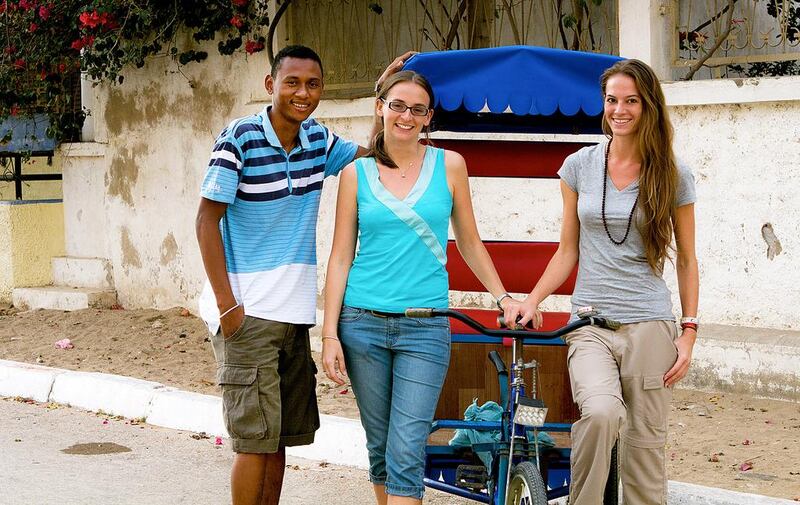DUBAI // A UAE voluntary organisation that helped poor rickshaw cyclists in Madagascar has launched another pioneering project – to help women in the island nation become tuktuk drivers.
Monyati Initiatives successfully supplied bicycle rickshaws on a lease-loan system, and with most of the rickshaws now paid for by the drivers, it has turned its sights on women.
But because tuktuks cost more, the organisation is appealing to the public for sponsorship.
“The rickshaw programme we launched a year and a half ago has now been completed and the pullers have paid off their loan and have taken ownership of the vehicles,” said Abu Dhabi resident Monja Wolf, who founded Monyati in 2009.
“They can now set up their own businesses and can look forward to a brighter future.”
About 11 of the 20 rickshaws have been paid for, with the others expected to be finalised in the coming weeks. That money will be reinvested into the project.
“We are now looking to upgrade from the pulled rickshaws to the motorised three-wheeled tuktuks,” she said. “We are looking to empower women and the idea is to run a similar micro-loan project.”
There are only nine tuktuks operating in Tulear, in the south-west of the island, compared with 9,000 rickshaws.
Depending on the exchange rate, a new tuktuk costs about Dh20,000.
“The concept runs in the same way as the rickshaw project,” said Ms Wolf. “We have a teacher who will train the women in how to drive the tuktuks and we are also teaching them leadership skills and personality development.
“We have women ranging from widows who need to care for five to six children, to single mothers and a younger woman who wants to support her ill grandmother.
“Due to the high cost of tuktuks we are looking to people in the UAE to help sponsor the vehicles.
“We did a similar thing for the rickshaws and donors get their names on the vehicles and get to know the person who was pulling the vehicle.
“People know exactly where the money is going and they have a direct link to the person who has benefited from their generosity.”
One of the candidates being interviewed to take part in the project is Toditsara, 21, a widow with an eight-year-old son.
“My husband died in 2012,” Toditsara said. “I raise my child alone. I try to find a job everywhere. I wish to be able to raise my child and be able to have a better life.”
The project is not without challenges. While women are well respected and supported in Malagasy society, few have had the opportunity to drive a motorised vehicle, said Danny Mueller, head of strategic projects.
“We need to train them and build their confidence and level of comfort in dealing with customers, competing with male tuktuk drivers and even responding to public criticism.
“We need to teach them how to drive carefully and responsibly. We also need to ensure their safety, which is why we have adapted our tuktuks to include a security door.”
The new drivers will be prohibited from being on the road at night.
“I’m very happy to say that feedback thus far has been extremely positive and supportive of the new initiative,” said Mr Mueller.
Once the programme is finished the women will take ownership of their tuktuks, allowing them to become self-sufficient and run their own businesses. Tuktuks will be given to between five and 10 women, and the rickshaw programme will grow from from 20 to 40.
For more details on how to sponsor a rickshaw or tuktuk visit justgiving.com/monyati
nhanif@thenational.ae






